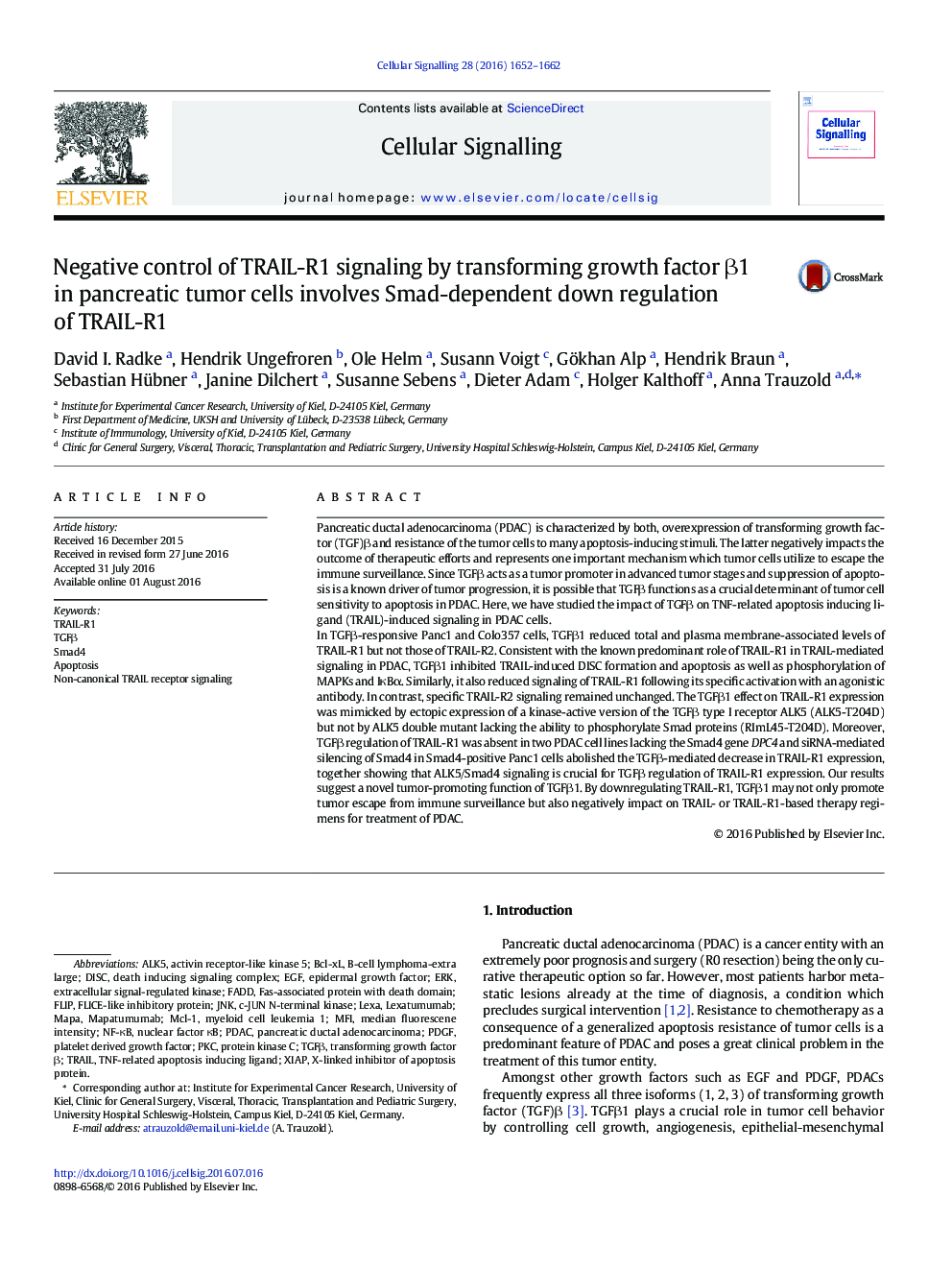| Article ID | Journal | Published Year | Pages | File Type |
|---|---|---|---|---|
| 5509412 | Cellular Signalling | 2016 | 11 Pages |
Abstract
In TGFβ-responsive Panc1 and Colo357 cells, TGFβ1 reduced total and plasma membrane-associated levels of TRAIL-R1 but not those of TRAIL-R2. Consistent with the known predominant role of TRAIL-R1 in TRAIL-mediated signaling in PDAC, TGFβ1 inhibited TRAIL-induced DISC formation and apoptosis as well as phosphorylation of MAPKs and IκBα. Similarly, it also reduced signaling of TRAIL-R1 following its specific activation with an agonistic antibody. In contrast, specific TRAIL-R2 signaling remained unchanged. The TGFβ1 effect on TRAIL-R1 expression was mimicked by ectopic expression of a kinase-active version of the TGFβ type I receptor ALK5 (ALK5-T204D) but not by ALK5 double mutant lacking the ability to phosphorylate Smad proteins (RImL45-T204D). Moreover, TGFβ regulation of TRAIL-R1 was absent in two PDAC cell lines lacking the Smad4 gene DPC4 and siRNA-mediated silencing of Smad4 in Smad4-positive Panc1 cells abolished the TGFβ-mediated decrease in TRAIL-R1 expression, together showing that ALK5/Smad4 signaling is crucial for TGFβ regulation of TRAIL-R1 expression. Our results suggest a novel tumor-promoting function of TGFβ1. By downregulating TRAIL-R1, TGFβ1 may not only promote tumor escape from immune surveillance but also negatively impact on TRAIL- or TRAIL-R1-based therapy regimens for treatment of PDAC.
Keywords
EGFJnkMFIMcl-1ERKactivin receptor-like kinase 5DISCFADDLexABcl-xLFLIPALK5FLICE-like inhibitory proteinc-Jun N-terminal kinaseepidermal growth factorB-cell lymphoma-extra largeMyeloid cell leukemia 1death inducing signaling complexMAPAFas-associated protein with death domainextracellular signal-regulated kinase
Related Topics
Life Sciences
Biochemistry, Genetics and Molecular Biology
Biochemistry
Authors
David I. Radke, Hendrik Ungefroren, Ole Helm, Susann Voigt, Gökhan Alp, Hendrik Braun, Sebastian Hübner, Janine Dilchert, Susanne Sebens, Dieter Adam, Holger Kalthoff, Anna Trauzold,
